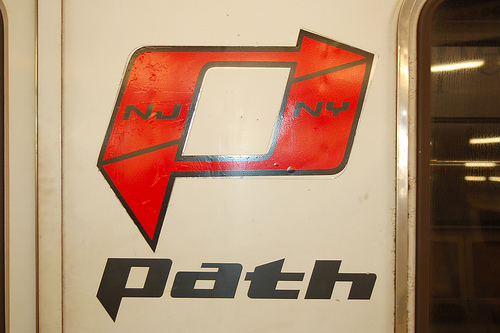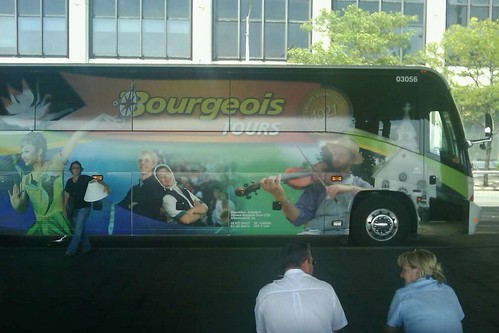August 27, 2009
Category: Uncategorized — Biella @ 5:25 pm

Security Conference in the tri-state area! Looks great and they have a great title.
ps– I am sure this won’t turn up a response but what the heck, this post is about security and dogs: If you want a real security dog who is compact and a DOLL/sweet-as-good at home, I have the dog for you. Pictured above. I am serious.
Category: Uncategorized — Biella @ 1:57 pm
A few updates on the EveryBlock case and the Knight Foundation. Tieguy (Luis Villa) left a comment which I am quoting in full below:
That said, it is entirely possible that Knight was ill-advised and believed (as many casual users do) in the magical power of open source licenses to create community. If this did indeed catch Knight off guard, it might be worth pulling people together to discuss best practices for grant-making organizations who want to create real value and not just lumps of well-licensed code.
Related to this, Berkman has released a whitepaper on (apparently) just this topic today. Probably worth checking out for folks interested in this topic.
Then there is this excellent interview led by Jonah Bossewitch with Chris Mackie who is a program office at Mellon.
Update: Here are some thoughts I penned down very very quickly in response to the interview:
1. I can see the argument about complex software products benefiting
from the BSD: at the same time I can totally see the value of just
keeping it open as well so everyone can benefit from improvements to
something that is as complex as Chris points point. Also if you keep
it totally internal to your shop, you don’t need to re-release,
although if you want to combine propriety and non-proprietary software
and then re-release I can see the value of the BSD code
2. When it comes to the question of ownership, where he says IP trumps licenses,
Chris Mackie does not seem to link the complexity of project to the licenses. When I was
having a discussion about this on Debian-devel, a number of folks
mentioned how very complex projects with many contributors, each who
had copyright and asserted GPL, worked through this swarm to protect
one person trumping ownership at some future point. They saw this as a
feature, not a bug, which I completely agree with. So some projects
are –and please correct me if I am wrong–far far more susceptible to
of weakness of the licenses if 1) they don’t hand over to a
trustworthy organization, like the FSF or the copyrights are held in a
few small hands. Once you start spreading the copyrights over a large
mas of people, it becomes very very difficult to ever assert a
copyright up and above the GPL.
Category: Uncategorized — Biella @ 5:51 am
August 25, 2009
Category: Uncategorized — Biella @ 9:11 am
We found this bus at South Street Seaport on Sunday. Someone thought I was photo shopped in but I was really there, lampshade and all. Someone should tell the bus owner that he/she needs to replace the image with something less Amish-like/Chinese-ice-skater and more fitting.
Category: Uncategorized — Biella @ 8:33 am
The Inaugural Interdisciplinary Conference of the Virtual Communication, Collaboration and Conflict (VIRT3C) Research Group at the University of Hull has circulated a call for papers:
Our plenary theme is ‘Developing the Virtual Society: Conflict in Adoption of Online Collaborative Networks’. As virtual society develops, and peer technologies and practices pump in its heart, this conference brings together academics of all disciplines to discuss conflict in the adoption of collaborative networks. This is a time of confrontation between older forms of communication and organization and new ways of sharing, collaborating and acting collectively. We seek to explore conflicts emerging in the transition from, and resistance to, horizontal participatory networks, as well as conflict within collaborative networks. We welcome suggestions for panels and papers on any area relating to our theme, and particularly in the following areas:
• Network Theory
• P2P and FLOSS methodology adoption
• FLOSS methodology
• Open source conflicts and forking
• Adoption by NGOs and the developing world
• Adoption by social movements, hacktivism, cyberconflict
• Institutional resistance to networks
• Online P2P places and conflicts
We encourage especially contributions, including, but not limited to, politics, economics, computer science, business, psychology, sociology, and law.
With your abstract of no more than 300 words please include the following information:
Name, postal address, email
Institutional affiliation and position (if applicable)
Please send abstracts in Word or pdf format to the organisers at
athina.k((((((@)))))gmail.com
Provisional Deadline for abstracts: 15th January 2010
August 23, 2009
Category: Uncategorized — Biella @ 8:07 am

For those in New York and interested in Public Transit and getting reliable information from the beast of an organization that is the MTA, you may be interested in the Public Transit Data Summit with beer!
WHERE: 148 Lafayette St, NY, New York, 12th floor (map)
WHEN: Tuesday, August 25 at 6pm
WHAT: Meetup to discuss how the MTA and the developer community can best collaborate.
I doubt the Path will receive much air time but I just had to include the logo above as it is my favorite transportation logo, not only because it looks cool but it signals the TIGHT relationship between NJ/NY, a relationship that nonetheless can be pretty tense. Here though is the relationship represented in Total Harmony.
August 18, 2009
Category: Uncategorized — Biella @ 9:55 am
Chris Anderson, who is mentioned in my previous post on Everyblock, has penned a very thoughtful blog post The Nuances of the Everyblock Sale to MSNBC. He sums up the debate so far and raises some interesting new points. It provides a great summary of some basic legal points in conversation with the particular case.
His conclusion included below:
I’d like to see all future versions of code devloped under the Knight grant remain open, whoever buys them. I think this is an ethical use of Knight grant money — and a good business strategy as well.
ps– a number of folks have told me that “grassroots” is def not the way they would describe Everyblock, even among those who think it is a pretty neat project.
update: (linked fixed) Here is another exxxceelllent blog entry about code. community, and foundations by John Eckman’s who finishes with this important insight:
Put differently, communities are great at creating (and maintaining, supporting, extending) code: code is not great at creating communities.
August 17, 2009
Category: Uncategorized — Biella @ 4:02 pm
So my buddy Chris Anderson, a fellow digital/comm scholar pointed me to this very interesting case concerning an open source project, originally funded by a foundation that was just sold to a Large Corporation. Here are the details:
Everyblock is/was a grassroots journalism web-based project that got a kick start thanks to a 1.1 million grant provided by the Knight Foundation. The project, as its name, suggests, reports on uber-local news, like your hood, your block. That sort of thing. Laudable stuff. The Knight Foundation required that the code be open source and it looks like there is a GPLv3 attached to the codebase.
Apparently, Everyblock was just acquired by MSNBC. At question is not only whether the future of its codebase will remain open but whether it is ethical to take foundation money and turn around such a high profit from a corporate buy out.
Chris, whose passion is grassroots journalism, has been tracking development and has noted some of this ethical and possibly legal quandaries. As he noted on Gawker:
That’s not good enough, says CUNY assistant professor Christopher Anderson, who writes that MSNBC has skimmed off the value of a project “developed by common labor;” Anderson is upset in part because it’s not clear whether EveryBlock’s code will remain openly available. NYU Local publisher Cody Brown has called for more transparency around the deal.
Whether or not one agrees selling a foundation-funded project to a corporation is kinda dodgy or not, the legal question remains: since the code is under a GPL3, doesn’t MSNBC have to also keep it under the same license if modified? Or can they take the code base since Everyblock is a web-based service? (I really am looking for answers here).
August 15, 2009
Category: Uncategorized — Biella @ 7:25 am
A two-three day vacation is starting now. I so need it. I have stared at this screen for too many hours this summer.
August 14, 2009
Category: Uncategorized — Biella @ 6:03 am
Update: Geek feminism blog has a great entry with a collection of personal reflections on what transpired during the course of 1998.
Cultural Anthropology has published a supplemental section for my articlee, one that not only has some nifty images, but gives a nice overview of the article. I have also received some feedback via email and blogs, which have been helpful and have already made their way into the book manuscript–the first draft of which is almost done (I am sending it to some folks very soon for comments).
Fred Benenson, Free Culture rabble rouser, wrote a retrospective, noting how DeCSS radicalized him, with apologies to MLK (you sill just have to read to see why he is apologizing, it is amusing).
James Vasile from the SFLC wrote a blog entry asking me to make some linkages between free speech and the freedom to associate, which is an excellent, excellent point, elaborated in his own words:
My point of departure from Biella is that she doesn’t go far enough. Code is speech, but it’s also very much more important than that. It’s community. The first amendment protects three areas of freedom: belief, speech and association. The first two are just examples of the third; free speech and religion are meaningless in the absence of community
Don Marti wrote an interesting email highlighting the importance of 1998, which I could not agree with more (bits from his email provided below). It was a pivotal year that really stirred the pot, so much so, that was the year I ditched my other project and decided to go with F/OSS for my dissertation. The problems was at the time my dissertation committee did not bite (they loved the idea, but were understandably concerned about my job prospects). I let the idea go for a few weeks, possibly months until one Very Important Conversation over coffee transpired with an Irish classmate who riveted me, in part with her accent, to press on if that is what I wanted to study. Given I have a real real real soft spot for Irish accents (like everything sounds so important, even revolutionary when an Irish person speaks), I was swayed, went back to my committee and well, here I am a decade later. And now you know how to convince me of something: get an Irish person to do the arguing.
So I encourage folks to take a read, it is readable, or so I think. Or maybe I should say far less jargony than some of my other stuff. I still welcome comments!
Here are some of Don’s thoughts about 1998:
1998 was a really weird year.
The intellectua lproprietarians got the DMCA — 98
to nothing in the Senate, voice vote in the House.
The Sonny Bono Copyright Term Extension Act passed
the same year. The IT industry was rapidly giving
up on the bickering, greedy Unix vendors, and Unix’s
non-fungible admins with a sort of literary tradition,
and moving instead to standardized certified MSCEs.
(A co-worker at the time told me that the main selling
point for Windows NT was that it didn’t have “cheeky
Unix geeks”.)
1998 was the apparent high-water mark for the
de-hackerification of the industry. Even long-time
hackerish companies were getting a haircut and
a shave. SGI introduced the Visual Workstation,
running Microsoft Windows NT, and O’Reilly and
Associates was pushing the company’s first and only
shrink-wrap software, a web server for Windows NT.
The spring 1998 O’Reilly catalog had all Windows books
on the cover, and all the Unix stuff was in back.
Netscape was on its way down in flames.
But all this stuff happened too.
http://lwn.net/1999/features/1998timeline/
Oracle for Linux. VC investment for Red Hat.
Open-source releases for Mozilla, Qt, and IBM Secure
Mailer (now Postfix). Linus Torvalds on the cover
of _Forbes_. It was also the first year that Linux
kernel developers got full-time jobs doing just
kernel work.
So there was all this fascinating news and code for
recruiting new hackers at the same time that there
was a huge power grab intended to drive hackers out.
It was a recipe for a political debate.
The Stallmanite incarnation of Free Software often
talks about recapturing a pre-EULA state of innocence
– not just the fabled environment of the MIT AI Lab,
where Stallman developed his code-sharing habits,
but a lot of early science and business computing.
Copyleft, a tool for defending Free Software,
is Stallman’s brainchild. (I remember seeing
a (Sperry?) ad at the Computer History Museum,
advertising a large software sharing community as
a feature of the company’s hardware line. Need to
find this again.)
Is copyright law a constitutional mandate? It’s in
the section with Letters of Marque and Reprisal, all
things that Congress is allowed, but not required,
to do.
Why do free software developers act as their own
lawyers? Maybe for the same reason they act as
their own testers, PR people, documenters, sysadmins,
whatever. Developers do their own law the same way
they do their own logos. When you get the processes,
connectivity, and tools to increase a development
organization’s tooth/tail ratio, any necessary
“tail” (context) tasks get picked up by “tooth”
(core) people.






